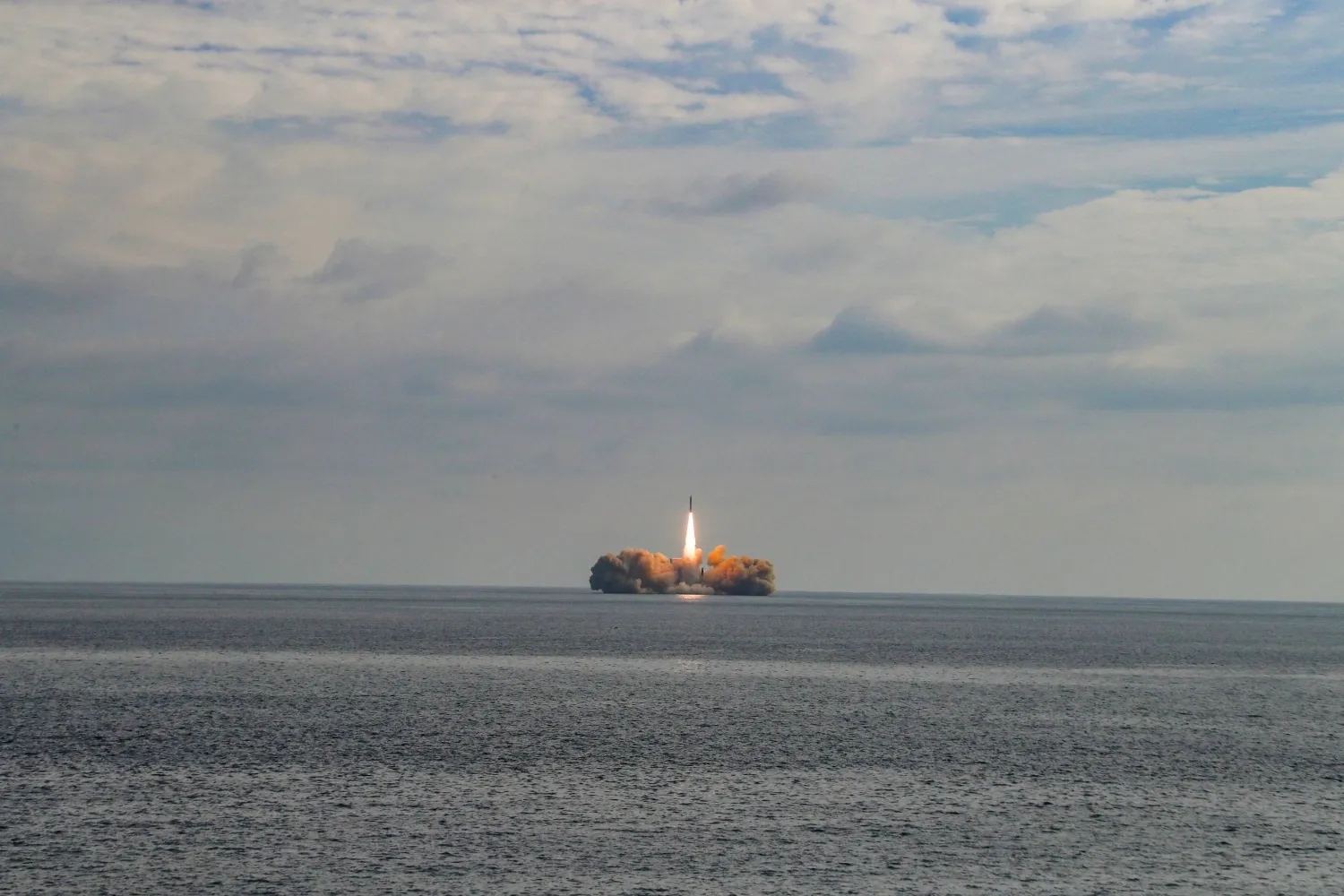South Korea on Monday successfully conducted a flight of a solid-fuel rocket carrying a satellite over the sea near Jeju Island, the defense ministry said, amid a growing space race with neighboring North Korea.
It was the third successful test of the rocket's technology after two others in March and December 2022.
The launch on Monday involved technology developed at the state-run Agency for Defense Development, and a booster and satellite produced by South Korea's Hanwha Systems, the ministry said in a statement.
Hanwha Systems said the satellite, which will be used for civilian purposes including environmental monitoring, had successfully sent signals to the ground control center, Reuters reported.
The ministry hailed the launch as achieving a milestone just after Pyongyang launched its first military spy satellite, which the United States and its allies have condemned for using missile technology contravening UN security resolution.
South Korea's successful launch will enable the country to accelerate its surveillance and reconnaissance capabilities, the ministry said.
A SpaceX Falcon 9 rocket carried South Korea's first spy satellite into orbit on Friday from California's Vandenberg Space Force Base.
North Korea on Monday denounced what it called Washington's "double standard" over the two Koreas' satellite launches and said such "brigandish" American standards would never be tolerated.
"North Korea will ... continue to pursue the important mission of establishing aerospace surveillance capabilities to thoroughly monitor and control military moves by the United States and other hostile forces," the North's space agency said in a statement carried by state media outlet KCNA.
Last month, North Korea launched its own military reconnaissance satellite, with leader Kim Jong Un receiving photos of the White House, Pentagon and US aircraft carriers at a naval base in Norfolk, Virginia, according to state media.
A functioning reconnaissance satellite could allow North Korea to remotely monitor US, South Korean, and Japanese troops. South Korea's satellites would reduce its dependence on American intelligence systems.
SKorea Flies Solid-fuel Rocket amid Space Race with NKorea

A solid-fuel space rocket is launched during a test flight over the sea near Jeju Island, South Korea, December 4, 2023. The Defense Ministry/Handout via REUTERS

SKorea Flies Solid-fuel Rocket amid Space Race with NKorea

A solid-fuel space rocket is launched during a test flight over the sea near Jeju Island, South Korea, December 4, 2023. The Defense Ministry/Handout via REUTERS
لم تشترك بعد
انشئ حساباً خاصاً بك لتحصل على أخبار مخصصة لك ولتتمتع بخاصية حفظ المقالات وتتلقى نشراتنا البريدية المتنوعة







